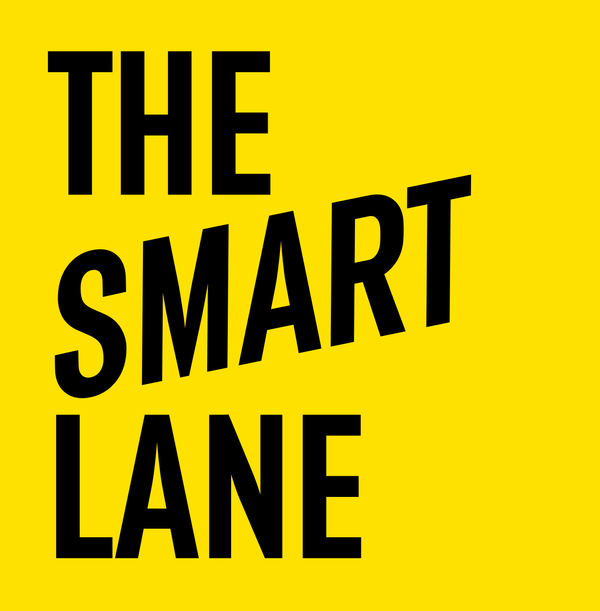AI Combined With Universal Basic Income Has the Power to Improve Everyone’s Lives
Let’s look at an ambitious but realistic vision.

Recent advancements in AI, particularly with Generative Pre-trained Transformers (GPTs) and Large Language Models (LLMs), have sparked widespread interest and debate about their potential to revolutionise our daily tasks in the coming years. These tools, developed early in the ongoing AI revolution, offer exciting possibilities for innovation and efficiency but also spark controversy and fears.
Artificial Intelligence (AI) isn’t just reshaping our jobs; it is set to fundamentally transform how we live.
Mundane tasks are going to be automated, freeing us to explore creativity, innovation, and human connection. But that is just the beginning. AI’s role in the future workforce is less about the jobs it replaces and more about the opportunities it creates for personal and societal growth.
When you consider the potential of AI combined with the promising concept of Universal Basic Income (UBI), it becomes clear how these advancements could fundamentally change the way we live.
AI and The Near Future
The benefits made available with AI tools today are already promising. Think of AI as your extension, an assistant who is handling the grunt work while your focus can shift to what truly matters.
When AI takes over routine tasks, it doesn’t just make businesses more efficient; it frees up time spent on tasks that would take away hours of a productive work day. Instead of spending hours on repetitive tasks, your freed up time enables you to dive into creative projects, work on complex problems, or research and explore new ideas.
These first benefits lay the groundwork for a new renaissance, driven by human ingenuity and emotional intelligence — areas where AI can’t currently compete.
What is Universal Basic Income?
Universal Basic Income (UBI) is a socio-economic policy that provides all citizens with a regular, unconditional sum of money, regardless of their employment status or income level. The primary goal of UBI is to ensure that everyone has enough financial resources to cover their basic needs, such as food, housing, and healthcare.
This income is intended to stabilise the wealth distribution. Applied UBI aims to reduce poverty and income inequality, offering a safety net that empowers individuals to pursue education, entrepreneurship, and other opportunities without the immediate pressure of financial insecurity.
The concept of UBI has been explored and tested in various experiments around the world. The data from these tests cannot be applied universally to a whole state or society. These experiments were conducted in an environment that is still based on our current economy and societal circumstances, which are strong influencing factors. Still, the relatively small samples of limited-scale experiments provide promising indicators.
For example, Finland conducted a two-year pilot programme where 2’000 unemployed citizens received a monthly basic income. The result was improved mental well-being and a slight increase in employment rates. Similarly, the city of Stockton, California, ran a pilot programme that provided 125 residents with a monthly stipend, leading to increased financial stability and reduced stress levels.
Advocates of UBI argue it can simplify the welfare system, reduce bureaucratic costs, and adapt to changes in the labour market brought about by AI automation and related technological advancements.
But is it a necessary, or even inevitable change?
Why a Shift Towards Universal Basic Income May Be Inevitable
As AI development continues to advance, the idea of Universal Basic Income (UBI) becomes more compelling.
UBI isn’t just a safety net; it’s a springboard.
By providing a regular, unconditional income, UBI empowers people to take risks, pursue education, and start new ventures without the fear of financial instability.
Early initiatives have one result in common: they show that when people’s basic needs are met, they contribute more to society. They innovate, volunteer, and engage in activities that enhance community well-being. In combination with AI, the stabilising effect of UBI makes the transition to an AI-driven economy smoother and more equitable, ensuring everyone benefits from technological progress.
As we’re looking at the wider scale of economical and societal impact, we’re finding more compelling arguments for the combined power of AI and UBI.
Economic Transformation Through Wealth Redistribution
In a scenario where everyone has the financial security to pursue their passions, a redistribution of wealth can lead to a flourishing of the arts and sciences, areas often underfunded but vital for cultural and intellectual growth. UBI could reshape our economies by addressing income inequality and fostering social cohesion.
In simple terms, UBI takes out the stress element of having to work to live, and it provides the foundation to refocus on what really matters in life.
Think of the economic stability UBI can provide as AI disrupts traditional job markets: UBI ensures that everyone has a stake in the new economy. The pain and stress caused by economic instability is levelled out, as UBI also promotes a more balanced work/life ratio.
A Catalyst for Democratic Harmony
UBI’s potential impact on democratic societies is profound. By reducing financial pressures, UBI can decrease political polarisation and remove barriers and biases that currently shape many populism-influenced groups. When people’s basic needs are met, they are less likely to cling to extreme political views, paving the way for more progressive and inclusive policies.
In a society where long-term planning and collective well-being are prioritised over short-term gains, UBI paves the way for a political climate focused on the common good, instead of removing barriers. It could mean that the gap today between conservative and progressive ideologies will be dissolved.
How Corporations Benefit from AI and UBI
Many companies fear that UBI might reduce the incentive for people to work. However, several benefits can actually arise from its implementation:
Companies offering supportive work environments can attract and retain top talent if they include the benefits of UBI. People are drawn to workplaces that value their well-being and offer stability. Employees with financial security are less stressed and more productive. They are likely to be more engaged and innovative, contributing to the company’s success.
With a basic income, people have more disposable income to spend, which can drive demand for products and services, benefiting businesses across various sectors. Financial security allows individuals to take entrepreneurial risks without the fear of destitution. This can lead to the development of new businesses and innovations that benefit the economy as a whole.
A Catalyst for Growth
We’ve looked at how Universal Basic Income (UBI) has the potential to revolutionise the economy. Applied to the real world, small experiments or city-wide adaptations of UBI are not going to rock the boat. Whole nations, like Germany or France, could be changed with universally applied UBI, and that could spur a more resilient and prosperous economic environment, fostering a more stable society.
To summarise, here are some key effects of AI in combination with UBI, and how it can positively impact nations who adopt UBI policies:
Increased Purchasing Power and Consumer Spending: One of the most immediate effects of UBI is the increase in purchasing power among the population. When every citizen receives a regular, unconditional income, it boosts their ability to spend on goods and services. An increase in consumer spending can drive economic growth by stimulating demand across various sectors.
Reducing Poverty and Inequality: UBI can play a crucial role in reducing poverty and income inequality. By providing a financial safety net, UBI ensures that all citizens have access to basic necessities, such as food, housing, and healthcare. This can significantly reduce the strain on social welfare systems and decrease the overall cost of addressing poverty-related issues.
Encouraging Entrepreneurship and Innovation: With a guaranteed income, individuals are more likely to take entrepreneurial risks and pursue innovative ventures. UBI provides the financial security needed to explore new business ideas without the fear of financial ruin. This can lead to a surge in small businesses and start-ups, driving innovation and job creation.
Enhancing Economic Stability: UBI can also contribute to economic stability by reducing the volatility associated with economic downturns. During recessions or periods of economic uncertainty, a universal income ensures that citizens continue to have purchasing power, which can help stabilise demand and prevent a deeper economic slump.
Promoting Health and Well-being: Economic stability is closely linked to health and well-being. UBI can alleviate financial stress, leading to improved mental and physical health outcomes. Healthier individuals are more productive and can contribute more effectively to the economy.
Critics Think Everyone Will Get Lazy
If the benefits of UBI are so promising, why aren’t we adopting it already?
While Universal Basic Income (UBI) has recently garnered support for its potential to transform the economy and enhance social well-being, it also faces significant criticism. The main argument is that UBI is an impractical or utopian idea, with potential downsides that could undermine its intended benefits.
There is a fear that applying a non-conditional basic income could lead to widespread laziness and a decline in motivation. Critics argue that providing a guaranteed income, regardless of employment status, might discourage people from working, studying, or pursuing meaningful activities. Instead of fostering creativity and innovation, it could result in people becoming complacent and reliant on government support.
This perspective is rooted in the belief that financial necessity is the only relevant driver for productivity and ambition. Without the pressure to earn a living, critics say, individuals may choose to spend their time engaging in passive activities, such as browsing social media or consuming entertainment, rather than contributing productively to society.
The Case for Creativity and Innovation
Creativity, innovation, and motivation are not driven by financial necessity, but by the innate desire to lead meaningful lives.
When people are freed from the pressures of financial survival, they have the opportunity to explore their true talents and capabilities. The desire to contribute to society, create, and be productive is deeply embedded in human nature.
Studies have shown that individuals often seek purposeful activities and meaningful work when financial pressure is removed. For example, during periods of economic stability, people have been found to engage more in volunteer work, pursue educational opportunities, and start new ventures. These activities are driven by intrinsic motivation and the desire to make a positive impact.
The perception that financial pressure is akin to a form of modern-day enslavement actually highlights the practical limitations of our current economic system. Many people work in jobs that do not fully utilise their skills, ambitions or passions, simply to make a living. UBI can provide the financial security needed to pursue more fulfilling and innovative careers, leading to a more fulfilled society with increased dynamically creative potential.
Financial Feasibility and Sustainability
Another major point of contention is the financial feasibility of UBI. Sceptics argue that funding a universal income for an entire population would place an immense burden on national budgets. They worry about the sustainability of such a programme, particularly in times of economic downturn or financial crisis. A typical concern is that the high costs associated with UBI could lead to increased taxes, reduced public services, or significant national debt.
Let’s not forget that, at present, a significant portion of the national budget of the most powerful nations on earth is allocated to military expenditures, and the budgets are most often utilised in ways that disproportionately benefit the wealthy.
The costs of UBI can be offset by restructuring existing education as well as welfare systems, reducing bureaucracy, and reallocating funds from other areas such as inefficient subsidies and tax loopholes. Moreover, UBI could stimulate economic growth by increasing consumer spending, which in turn can boost tax revenues. A study by the Roosevelt Institute found that implementing UBI in the United States could expand the economy by $2.5 trillion over eight years due to increased consumer demand.
Labour Market Impact
Critics also question the economic impact of UBI on labour markets. There is an assumption that people will not be motivated to work, and thus, businesses could struggle to find employees — particularly for low-wage or undesirable jobs. This could lead to labour shortages and potentially disrupt the economy.
But most low-wage jobs that become redundant due to the effects of AI (or, by extension, UBI), are not fulfilling jobs. Given the chance, a child growing up in a poor neighbourhood, forced to spend their adult life as a factory worker, could instead have the opportunity to study and pursue their interests.
Evidence from UBI pilot programmes suggests that most people do not stop working when they receive a basic income. Instead, they often use the financial security to further their education, pursue better job opportunities, or start their own businesses. For instance, the Finnish UBI experiment showed that while overall employment did not significantly increase, participants reported higher well-being and life satisfaction, which can lead to long-term productivity gains.
Additionally, businesses can adapt by automating undesirable jobs, increasing wages, and improving working conditions to attract employees.
Sinead Bovell, a futurist and founder of WAYE, emphasises the need for responsible AI development and deployment. She points out that while AI can enhance productivity and innovation, it is crucial to ensure transparency, fairness, and accountability in its implementation. Bovell also advocates for a societal conversation about the future of work and worker protections, underscoring that these discussions should be inclusive of diverse voices to create a future we all want to be part of.
In Bovell’s words: “Everyone deserves the opportunity to co-create the futures they want to be a part of.” — Essentially, this encapsulates the potential of this shift of combining the effects of AI and UBI into our work life and societal framework.
Critics Say UBI Increases Risks and Costs Too Much
Some argue that UBI might not effectively address the root causes of poverty and inequality. By providing the same amount of money to everyone, regardless of their financial situation, UBI could perpetuate or even exacerbate existing inequalities.
Wealthier individuals might invest their UBI in ways that further increase their wealth, while those in poorer circumstances might use it to cover basic needs without improving their long-term economic prospects.
UBI is designed to provide a safety net that ensures everyone can meet their basic needs, which can reduce extreme poverty and provide a more level playing field. While wealthier individuals might invest their UBI, the financial security provided to those in need allows them to pursue opportunities that can lead to upward mobility.
For example, research shows that financial stress impairs cognitive function, and alleviating this stress can improve decision-making and productivity . To address potential inequalities, UBI can be complemented with progressive taxation of the rich and it can utilise targeted social programmes that focus on education, healthcare, and job training.
Scott Santens, a prominent advocate for UBI, highlights that the costs of insufficient basic income and inequality of wealth are currently substantial, not only for individuals but for governments and other institutions. It burdens healthcare, criminal justice, and education systems, and stifles productivity and consumer buying power. Santens points out that the net cost of UBI is often misunderstood. By redistributing income through taxes, the true cost is much lower than it appears, making UBI financially feasible and beneficial for the economy as a whole.
Long-term Effects and Conclusion
The changes AI and UBI in combination could bring are so profound that it is difficult to predict the long-term outcome.
Children growing up in a UBI-supported environment will benefit from parents who are less stressed about financial survival and more focused on nurturing their development. This will most likely, almost inevitably, lead to a generation of adults who are more curious, well-educated, and motivated to contribute meaningfully to society.
Simply put, self-improvement and self-realisation will have a better chance to drive motivation and long-term life decisions for this generation, and as a result, improve our lifestyles and health in societies.
However, it is crucial to consider potential drawbacks and further test the effects of UBI programmes on a larger scale.
The successful implementation of UBI necessitates careful planning, robust economic modelling, and the development of complementary policies to mitigate unintended consequences. By engaging in open dialogue, large-scale testing and ongoing research, we can refine the concept and ensure that UBI aligns with the broader goals of creating a fairer, more inclusive society.
This shift won’t happen overnight. It will require courage, faith, and a willingness of society to adapt, accept changes, and experience the benefits firsthand. Because the benefits are not immediate, it will be difficult for politicians to convince people that this is a good development. But perhaps it’s not the politicians’ job to convince us, but rather that of organisations, thought-leaders, and entrepreneurs.
One question has a clear answer: without trying it out, we will never know if a better socioeconomic system, with significant improvements over our current system, is even possible.
References
- Bovell, Sinead, WAYE
- Harari, Yuval Noah. “Sapiens: A Brief History of Humankind”
- Santens, Scott, “Why We Should All Have a Basic Income.”
- National Library of Medicine, US Government, “Financial stress and depression in adults: A systematic review”
- Stockton Demonstration, UBI Pilot Programme in Stockton, California
- GiveDirectly UBI Experiment in Kenya, GiveDirectly
- World Economic Forum, UBI Pilot Programme in Finland
- Wikipedia, Universal Basic Income Pilots
Note: The writing, the thoughts and ideas described in this article are my own, and the presented concepts are derivatives of research and my own conclusions. ChatGPT 4o was used for the purposes of research, summarisation, and editing and correcting grammar and spelling, as well as ensuring sentence structure and -coherence of the article.
This article has also been published on my blog, as well as LinkedIn.




